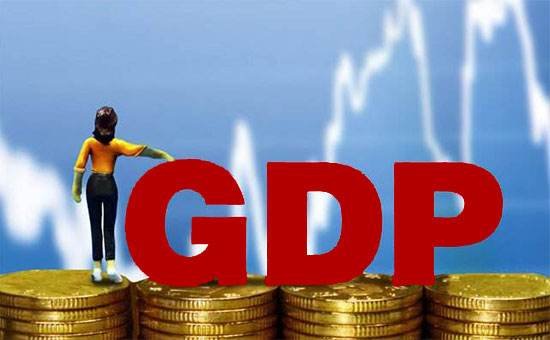中国经济和房地产 China's economy and real estate
写一下我对中国经济和房地产市场最近的一些思考,其实这个问题涉及的方面很多,包括政府债务、银行杠杆、公司负债和居民负债。
我的核心观点是,中国的经济的风险是金融系统的风险,而不是房地产领域的风险。这个和2008年美国危机有很大的不同,美国的情况是由于次贷用户的违约带来的连锁反应,最后导致房地产市场和金融市场的危机。
中国贷款市场的违约不会从居民房贷开始,因为居民负债与公司负债相比要低得多,中国金融系统的风险在于那些永远还不起本金的企业,这些企业大部分是已经没有任何商业价值,只是靠银行的循环贷款活着。虽然中国银行系统的坏账率看起来很低,这只不过是银行系统不停的给这些僵尸企业提供新贷款,让这些企业还能用新贷款还得起利息。从报表看,只要企业还得起利息,就可以永远不计入坏账,这种自欺欺人的鸵鸟政策并不能解决金融系统严重的问题。
Write down some of my recent thoughts on China's economy and real estate market. In fact, this issue involves many aspects, including government debt, bank leverage, corporate liabilities and residents' liabilities.
My core point is that China's economic risk is the financial system's risk, not the real estate's risk. This is very different from the 2008 U.S. crisis. The U.S. situation is due to the chain reaction caused by the subprime mortgage users' default, which finally led to the crisis in the real estate market and financial market.
The default in the Chinese loan market will not begin with residential mortgages, because the residents' liabilities are much lower than corporate liabilities. The risk of the Chinese financial system lies in those companies that can never afford the principal. Most of these companies do not have any Business value,depends only on the bank's revolving loan. Although the bad debt rate of the Chinese banking system seems to be low, this is simply a system of banks that constantly provides new loans to these zombie companies, so that these companies can still use the new loans to pay interest. On the balance sheet, as long as the company still pay interest, and they can never be included in bad debts. Such a self-delusional ostrich policy does not solve the serious problems of the financial system.

那我们来看将要发生什么。
目前金融系统的风险已经到了极限,中国的外汇储备已经不足以支撑这种债务扩张,下一步可能发生两种情况,一种是金融系统主动收缩,大量的僵尸企业会死亡,银行系统也要面对坏账的上升,房地产价格也会大幅降低。第二种情况是,金融系统保持现状,大量资金会选择逃离中国,人民币会急剧贬值。
理论上这两种情况都有可能发生,主要看中国政府的选择。第一种模式实际上是美国模式,就是保持货币稳定,让国内市场消化风险,结果就是国内资产价格大跌。第二种模式就是俄罗斯模式,保持国内资产价格不变,让货币大跌。
从感情上我愿意选择第一种办法,但我觉得中国政府极有可能选择第二条路,维持债务现状。这样的选择会导致大量外汇离开中国,人民币迅速贬值,中国政府为了延缓这种趋势,从去年开始对外汇交易实施了严格的管制,但我认为这不会坚持多久,当越来越多的人意识到人民币不可避免的会大幅度贬值的时候,会想出各种方法离开中国。
基于这种判断,我非常看好加密货币。这为中国人创造了一种保护财产的方法,一种对抗政府强权的自我保护方法。
Then let's see what will happen.
At present, the risk of the financial system has reached the limit. China's foreign exchange reserves are no longer sufficient to support this kind of debt expansion. The next step may be two cases. One is that the financial system actively shrinks, a large number of zombie companies will die, and the banking system will also face as the bad debts rise, real estate prices will also drop substantially. The second is that the financial system maintains the status quo. A large amount of money will choose to flee China and the RMB will depreciate sharply.
Theoretically, both of these situations are likely to occur. It mainly depends on the choice of the Chinese government. The first model is actually the US model, which is to maintain currency stability and allow the domestic market to absorb risks. As a result, domestic asset prices have fallen sharply. The second model is the Russian model, which keeps the price of domestic assets unchanged, causing the currency to fall.
Emotionally, I'm willing to choose the first model, but I think the Chinese government is very likely to choose the second way to maintain the current status of debt. This choice will result in a large amount of money leaving China, and the rapid devaluation of the RMB. In order to delay this trend, the Chinese government began to impose strict controls on foreign exchange transactions from last year, but I think this will not last long, when more and more people realizing that the RMB will inevitably depreciate significantly, it will come up with various ways to leave China.
Based on this judgment, I am very optimistic about the cryptocurrency. This has created a way for the protection of property for the Chinese, a method of self-protection against the government's power.